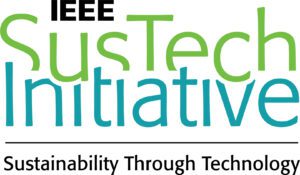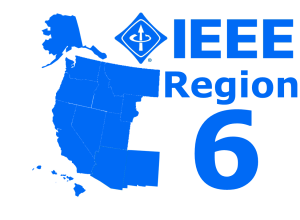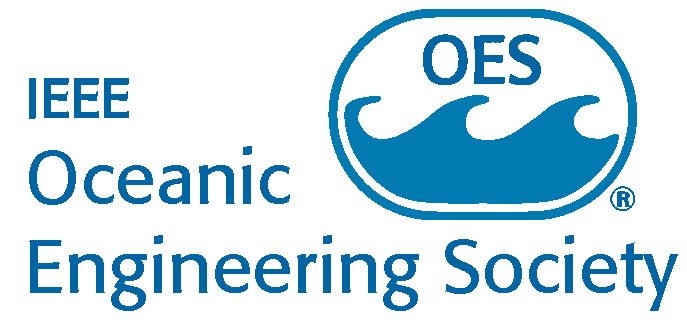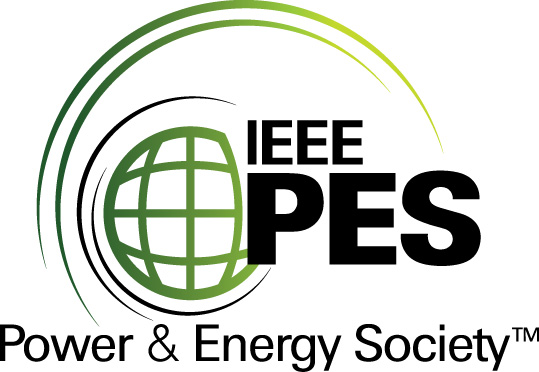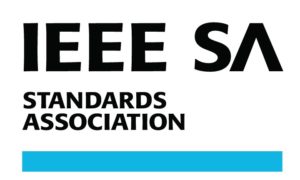Program Sessions
SusTech 2016 Program by Session
See Invited Speakers page for the Complete Invited Speaker Program.
See Keynotes page for details on the keynotes speakers.
See Closing Panel page for details on the panel and panelists.
Click here for our Sponsors and Patrons.
Click here to download a PDF of this page.
Sunday, October 9
12:00 pm – 04:00 pm Workshop: Makers & Sustainability Workshop
Chair: Vivek Gupta (NXP Semiconductor & IEEE Phoenix Section, USA)
03:00 pm – 07:00 pm Student Poster Contest
Room: Arizona Ballroom
Chair: Phani Charana (IHS, USA)
Co-Chair: Michael Goryll (Arizona State University, USA)
5:30 pm – 07:00 pm Opening Reception
Room: Arizona
Conference Chair: Vivek Gupta (NXP Semiconductor & IEEE Phoenix Section, USA)
Monday, October 10
08:00 am – 09:30 am Opening Remarks and Keynote
Room: Arizona
Conference Chair: Vivek Gupta (NXP Semiconductor & IEEE Phoenix Section, USA)
“Internet of Things — Transformative Megatrends for Sustainability”
Speaker: Mark Goldstein, President, International Research Center
The Internet of Things (IoT) will connect tens of billions of new sensors and devices driving sustainability while transforming home, business, government, industrial, medical, transportation, and other complex ecosystems.
10:00 am- 12:00 am
Session M1A: Energy Efficiency
Room: Buckhorn
Chair: Julie McCulley / Kevin Anderson (California State Polytechnic University at Pomona & Solar Thermal Alternative Renewable Energy Lab, USA)
10:00 A Field Study of the Residential Clothes Drying Process
Amy Fuchs Heidner, PE and Dennis Heidner (The Rextor Group PLLC, USA)
10:20 Influential Factors for Accurate Load Prediction in a Demand Response Context
Morten G Wollsen, Mikkel Kjaergaard and Bo Jørgensen (University of Southern Denmark, Denmark)
10:40 Solar Energy Overview and Maximizing Power Output of a Solar Array Using Sun Trackers
Hamid Allamehzadeh (Eastern New Mexico University, USA)
11:00 Systematic Energy Management: a Foundation for Sustainable Production
Tallal Javied (Friedrich-Alexander-University of Erlangen- Nuremberg, Germany); Alireza Esfandyari (University of Erlangen-Nuremberg & FAPS Institute, Germany); Joerg Franke (FAPS, Friedrich-Alexander-Universität Erlangen-Nürnberg (FAU), Germany)
11:20 Mining Building Metadata by Data Stream Comparison
Emil Holmegaard and Mikkel Kjaergaard (University of Southern Denmark, Denmark)
Room: Sagebrush
Chair: Yasser Yasaei (ASU, USA)
10:00 The International Development of RoHS
Debbie Horn (IBM, USA)
10:20 Solar Photovoltaic Optimization for Commercial Flat Rooftops in Cold Regions
Hadia Awad (University of Alberta & SOLARMAX Power Inc., Canada); Mustafa Gul, Chelsea Ritter, Preshit Verma and Yuan Chen (University of Alberta, Canada); Haitao Yu and Kyle Kasawski (SOLARMAX Power Inc., Canada); K Salim and Mohamed Al-Hussein (University of Alberta, Canada)
10:40 A Standby Strategy Model for an Energy Efficient Soldering Oven Machine
Alireza Esfandyari (University of Erlangen-Nuremberg & FAPS Institute, Germany); Tallal Javied (Friedrich-Alexander-University of Erlangen- Nuremberg, Germany); Felix Reissmann (Friedrich-Alexander-University of Erlangen-Nuremberg, Germany); Joerg Franke (FAPS, Friedrich-Alexander-Universität Erlangen-Nürnberg (FAU), Germany)
11:00 Application of Auto-Catalytic Metallization as a Sustainable Technique for Planar Inductor Fabrication
Reza Kamali-Sarvestani, Paul Weber, Epraim Nielson and Ammon Johnston (Utah Valley University, USA)
11:20 Design and Analysis of Solar Devices in Public Places to Help Meet Energy Demand
Justin Roberts, Justin Halversen, Christopher Running, Nathan Johnson and John Salmon (Brigham Young University, USA)
Session M1C: Renewable Energy I
Room: Ponderosa
Chair: Maxx Patterson (IEEE SusTech, Arizona State University, USA)
10:00 Towards a Zero Net Energy Community Microgrid
Isaac Jordan (UPR-Mayaguez, Puerto Rico); Efraín O’Neill-Carrillo (University of Puerto Rico-Mayaguez, Puerto Rico); Naysy Lopez (UPR-Mayaguez, Puerto Rico)
10:20 Heat Transfer Fluids for Parabolic Trough Solar Collectors – A Comparative Study
Reuben Buehler (Seattle University, USA); Sam Yang and Juan Ordonez (Florida State University, USA)
10:40 Control Strategy for Inverter in a Micro-Grid Under Unbalanced Grid Condition
Ashokkumar L and Sheeba Babu (PSG College of Technology, India)
11:00 Sizing and Location Identification for an Electrical Energy Storage System in a Renewable Microgrid
Pavan Kumar Penkey, Nathan Gaul, Brian K Johnson and Herbert Hess (University of Idaho, USA)
12:00 pm- 01:30 pm Lunch and Keynote
Room: Arizona Ballroom
Chair: Vivek Gupta (NXP Semiconductor & IEEE Phoenix Section, USA)
“Navigating the challenges created by constant innovation on the used electronics industry: The need for collaboration and communication between electronics designers and e-waste recyclers and refurbishers”
Speaker: Karin Harris, President, eGreen-IT Solutions, LLC
01:30 pm – 03:00 pm
Room: Buckhorn
Chair: Jake P. Gentle (Idaho National Laboratory & DOE, USA)
1:30 Exploring Security Metrics for Electric Grid Infrastructures Leveraging Attack Graphs
Panini Sai Patapanchala, Chen Huo, Rakesh B. Bobba and Eduardo Cotilla-Sanchez (Oregon State University, USA)
1:50 Improved Protection Scheme for Data Attack on Strategic Buses in the Smart Grid
Charith D Wickramaarachchi, Sanmukh Kuppannagari, Rajgopal Kannan and Viktor K. Prasanna (University of Southern California, USA)
2:10 Smart Grid Cyber Test Bed Development
Sean S Monemi (California State Polytechnic University at Pomona, USA); Dani Kamand (California State Polytechnic University at Pomona); Rakshith Thayi, Stanley Luong and Tyler Venrick (California State Polytechnic University at Pomona, USA)
M2A-I: Smart Grid I – Invited talk
2:30 Enhanced representations of lithium-ion batteries in power systems models and their effect on the valuation of energy arbitrage applications
Apurba Sakti, MIT Energy Initiative
We develop three novel enhanced mixed integer-linear representations of the power limit of the battery and its efficiency as a function of the charge and discharge power and the state of charge of the battery, which can be directly implemented in large-scale power systems models and solved with commercial optimization solvers. Using these battery representations, we conduct a techno-economic analysis of the performance of a 10MWh lithium-ion battery system testing the effect of a 5-min vs. a 60-min price signal on profits using real time prices from a selected node in the MISO electricity market. Results show that models of lithium-ion batteries where the power limits and efficiency are held constant overestimate profits by 10% compared to those obtained from an enhanced representation that more closely matches the real behavior of the battery. When the battery system is exposed to a 5-min price signal, the energy arbitrage profitability improves by 60% compared to that from hourly price exposure. These results indicate that a more accurate representation of li-ion batteries as well as the market rules that govern the frequency of electricity prices can play a major role on the estimation of the value of battery technologies for power grid applications.
Room: Sagebrush
Chair: Yasser Yasaei (ASU, USA)
1:30 A General Model for Energy Efficiency Calculation
Marcos Roitman and Dvir Bueno (Sami Shamoon College of Engineering, Israel)
1:50 Retrofitting and Energy Control of an Academic Building
Jose Hoyo-Montano, Daniel Espejel-Blanco and Diego Schurch-Sanchez (Instituto Tecnológico de Hermosillo, Mexico)
Session: M2C: Renewable Energy II
Room: Ponderosa
Chair: Maxx Patterson (IEEE SusTech, Arizona State University, USA)
1:30 Wind Energy History, Technology and Control
Hamid Allamehzadeh (Eastern New Mexico University, USA)
1:50 Energy and Environment in Indonesia
Anjar Priandoyo (University of York, United Kingdom)
M2C-I: Renewable Energy II – Invited talk
2:10 Zinc-air Batteries Gain Momentum in Long Duration Applications
Glynne Townsend,VP Business Development, North America, Fluidic Energy
Advanced energy storage technologies are proving to be optimal solutions for long duration applications and enabling strong momentum in long duration applications that have traditionally faced cost and lifetime obstacles including renewable integration, benefit stacking and off grid microgrids. Fluidic Energy invented and commercialized the first rechargeable and long duration Zinc-air energy storage technology, an optimal technology for long duration applications. With over 40 MWh energy storage and strong momentum, Fluidic Energy’s rechargeable Zinc-air technology is filling a void in the clean energy market unlocking commercial viability. Furthermore, this session will cover how Fluidic solutions in these types of applications are going well beyond the chemistry itself to provide vertically integrated solution and a whole product approach.
03:30 pm- 05:00 pm
Room: Buckhorn
Chair: Jake P. Gentle (Idaho National Laboratory & DOE, USA)
3:30 Redox Flow Batteries for Small Scale Energy Storage
Muhammad Misykat Hiksas and Muhammad L Aninditio (Universitas Indonesia, Indonesia)
3:50 Reducing Demand Charges and Onsite Generation Variability Using Behind-the-Meter Energy Storage
Bishnu P. Bhattarai, Kurt S. Myers and Jason Bush (Idaho National Laboratory, USA)
4:10 Adequacy Assessment of Microhydro Based Mini-Grid
Nava Raj Karki, Manoj Singh, Netra Gyawali and Mahamad Badrudoza (Institute of Engineering, Tribhuvan University, Nepal); Sumit Paudyal (Michigan Technological University, USA)
M3A-I: Smart Grid II – Invited talk
4:30 Optimal Real-time Demand Dispatch in Smart Grids
Sumit Paudyal, Michigan Technological University
With the implementation of Smart Grid technologies, such as sensors, smart meters, smart appliances, more than one-fourth of the US total electricity demand could be dispatchable. Coordinated demand dispatch of customers’ loads provides benefits to the customers and the grid both. A complete demand dispatch solution that benefits the customers and the grid involves a large scale optimization problem with underlying complex transmission and distribution grid models. A centralized approach to solve this problem is computationally involving in a practical sized grid with the consideration of comprehensive customer load models and the grid models that include discrete control variables. A practical way to solve this problem is to use hierarchical and distributed computing approaches, where information exchange occurs between the different levels in the hierarchy. This talk presents hierarchical framework to i) optimally dispatch electric vehicle (EV) loads in vehicle-to-grid interaction (V2G) and ii) optimally dispatch commercial building loads in building-to-grid (B2G) interaction. The case studies demonstrate the benefits of optimal demand dispatch of EV and building loads to the customers and distribution grid operation.
Room: Sagebrush
Chair: Ed Perkins / Amelia Regan (University of California, Irvine, USA)
3:30 Performance Analysis of Continuously Varying Transmission System for Electric Vehicles
Madhavaram Sai Krishna, Kishore M n and Suresh Nagesh (PES University, India)
3:50 Dispatch Control with PEV Charging and Renewables for Multiplayer Game Application
Nathan Davis and Brian K Johnson (University of Idaho, USA); Timothy McJunkin and Don Scooffield (Idaho National Laboratory, USA); Sera E White (GravisTech, USA)
4:10 Key Variable Analysis and Identification on Energy Consumption of Automotive Manufacturing Plant
Lujia Feng (Clemson University, USA); Laine Mears (Clemson University & International Center for Automotive Research, USA); Joerge Schulte (BMW Manufacturing Co., USA)
Session M3C: Internet of Things (IOT)
Room: Ponderosa
Chair: Debbie Horn (IBM, USA)
3:30 Field Testing of IoT Devices for Livestock Monitoring Using Wireless Sensor Network, Near Field Communication and Wireless Power Transfer
Lim Teck Beng, Poh Boon Kiat, Lee Ngai Meng and Ngee Cheng Phoa (Nanyang Polytechnic, Singapore)
3:50 A Case for Open Access Smart Grids (OASIS)
Manuel Rodriguez-Martinez (University of Puerto Rico, Mayaguez, Puerto Rico); Efraín O’Neill-Carrillo (University of Puerto Rico-Mayaguez, Puerto Rico); Marla Perez (University of Puerto Rico, Mayaguez, USA); Fabio Andrade (University of Puerto Rico, Puerto Rico); Wilson Rivera (University of Puerto Rico, Mayaguez, USA); Agustín Irizarry-Rivera (University of Puerto Rico-Mayaguez, Puerto Rico); Rafael Rodriguez (University of Puerto Rico, Mayaguez, USA); Cecilio Ortiz (UPRM, Puerto Rico); Eduardo Lugo (University of Puerto Rico, Mayaguez, USA)
4:10 Transforming Community-based Screening of Total Hemoglobin Using Non-invasive Devise
Shahzaib Bukhari (Tech4Life Enterprises, Pakistan); Saad Abdullah (Tech4life Enterprises, Pakistan); Saad Khan (Tech4Life Enterprises, Pakistan); Nida Husyin (Tech4Life Enterprises, Saudi Arabia); Nateela Tirmizi, Suha Tirmizi and Dodo Khan (Tech4Life Enterprises, Pakistan); Masood Khan (DOW University of Health Sciences, Pakistan); Rafiq Khanani (Citilab Diagnostic Center, Pakistan); Shariq Khoja (Global CEO – Tech4Life Enterprises, Pakistan)
06:30 pm – 08:30 pm Dinner and Keynote
Room: Arizona Ballroom
Chair: Vivek Gupta (NXP Semiconductor & IEEE Phoenix Section, USA)
“The Future of the Suburban City: Lessons from Sustaining Phoenix”
Speaker: Grady Gammage, Jr., Gammage Burnham
Grady Gammage, Jr. is a part time academic, a practicing lawyer, an author, a sometime real estate developer and a former elected official. Grady has been practicing law in Phoenix for 40 years. His practice has focused on land use, zoning and real estate projects throughout Arizona. He has represented projects ranging from master planned communities and subdivisions to high rise buildings and intense urban mixed-use redevelopment. He thinks life is more interesting if you do lots of different things.
In his academic role, Mr. Gammage is a Senior Fellow at ASU’s Morrison Institute. His work there focuses on urban growth and development, quality of life, and local economic issues. He also teaches at the College of Law and at the Herberger Institute for Design and the Arts.
Tuesday, October 11
08:00 am- 10:00 am
Session T4A-I: Smart Grid III – Invited talk
Room: Buckhorn
Chair: Jake P. Gentle (Idaho National Laboratory & DOE, USA)
8:00 Sustainable System Assessment with Resilient Control Systems Metrics
Timothy R McJunkin, INL
8:30 Development of Smart Grid Test-bed for Electric Power Distribution System
N Serdar Tunaboylu and Gaddafi Shehu (Mevlana University, Turkey); Mehmet Argin (California State Polytechnic University, Pomona, USA); Tankut Yalcinoz (Mevlana University, Turkey)
8:50 Modeling of Phasor Measurement Unit for Wide Area Monitoring and Control of Smart Grids with Distributed Energy Resources
Ashokkumar L and Karthikeyan S (PSG College of Technology, India)
9:10 Dispatchable Renewable Energy Model for Microgrid Power System
Fred Chiou (Weber State University, USA); Jake P. Gentle (Idaho National Laboratory & DOE, USA); Timothy McJunkin (Idaho National Laboratory, USA)
Session T4B-I: Societal Implications – Invited talk
Room: Sagebrush
Chair: Mike Andrews (Andrews & Associates; IEEE SSIT; USA)
8:00 Humanitarian Engineering and Sustainable Global Development
Dr. B.L. Ramakrishna, Emeritus Professor, Arizona State University
The presentation will A) Illustrate that scientific and technological innovation is key for achieving sustainable development to address the grand challenges especially in developing economies of the world B) Enumerate how designing for the developing world can boost agricultural productivity, provide clean drinking water, expand educational opportunities, empower women, improve child & maternal health and combat infectious diseases and in addition promote environmental sustainability C) Highlight a few examples in the energy, water/sanitation, health and other sectors to show the power of design under extreme constraints to address the needs of more than 2 billion people at the bottom of the pyramid and D) Point out the important considerations at the intersection of science, technology & policy and the need for inventive business models for scaling and sustainability.
8:30 An Engineering Approach for Developing Sustainable Ambient Assisted Living Solutions
Volker Schuermann and Christian Weidauer (Bochum University of Applied Sciences Campus Velbert/Heiligenhaus, Germany)
8:50 Solar Power Satellites, A Solution to Energy and Carbon
Keith Henson (L5 Society, USA)
9:10 Modeling Dynamics of a Market-Based Emission Control System: Efficacy Analysis
Mohammadhussein Rafieisakhaei (Texas A&M University, USA); Babak Barazandeh (Virginia Tech, USA)
9:30 Effect of Localization on the Sustainable Development in Iran’s Car Industry
Babak Barazandeh (Virginia Tech, USA); Mohammadhussein Rafieisakhaei (Texas A&M University, USA)
Session T4C-I: Renewable Energy III – Invited talk
Room: Ponderosa
Chair: Maxx Patterson (IEEE Sus Tech, Arizona State University, USA)
8:00 <OPEN>
8:30 Metering DC Coupled Distributed Energy Resource Systems
Dustin Stapp and Joel Dickinson (Salt River Project (SRP), USA)
8:50 Fault Current Contribution of Renewable Distributed Generation: An Overview and Key Issues
Tarek Masaud (Texas A&M University- Kingsville, USA); Ronak Deepak Mistry (Texas A&M University – Kingsville, USA)
9:10 A Solar Simulator for the Renewable Energy Instruction Laboratory
Yousif Dafalla and Mohamed Osman (Washington State University Tri-Cities, USA)
9:30 A Flocculation Strategy for Harvesting High Lipid Content Microalgae Biomass
Jacqueline Lemos (UFPR, Brazil); Andre Mariano and Jose Vargas (Federal University of Parana, Brazil); Vanessa Kava (UFPR, Brazil); Juan Ordonez (Florida State University, USA)
10:30 am- 12:00 pm
Session T5A-I: Smart Grid IV – Invited talk
Room: Buckhorn
Chair: Jake P. Gentle (Idaho National Laboratory & DOE, USA)
10:30 Transactive Energy Market
Paras Mandal, University of Texas at El Paso
The key elements of the smart distribution systems, such as end-user consumers, distributed energy resources, storage systems, demand response programs and others, need to be actively involved in local coordination tasks for dynamic balancing of supply and demand. In this regard, Transactive Energy (TE) is an emerging concept that shows potential to coordinate the operation of an ever-growing number of intelligent devices and resources by treating economic and control signals of power system. The concept of TE in power grid is in its infancy, however, TE is an area of great opportunities to improve smart grid operations. This talk presents (i) a decentralized TE market mechanism to improve the efficiency, reliability, and performance of the electric power grid in the path towards a sustainable future and (ii) some of the value drivers for the deployment of TE systems. This talk will also highlight the importance of TE market mechanism to provide an interface for DSO and TSO in order to manage the increasing complexity of the grid effectively.
11:00 A Novel Solution to Use Big Data Technologies and Improve Demand Response Program in Aggregated Residential Houses
Vivek Abhilash Hanumantha Vajjala (DataFactz, USA)
Session T5C-I: Renewable Energy IV – Invited talk
Room: Ponderosa
Chair: Maxx Patterson (IEEE SusTech, Arizona State University, USA)
10:30 Effect of Spectral Shift on Solar PV Performance
Mitchell Lee, First Solar
Photovoltaic module performance is defined at standard test conditions, which includes a defined spectral irradiance distribution. However, environmental conditions in the field often differ from the standard spectrum; this change in spectrum is known as spectral shift or spectral mismatch. Mitchell will discuss the impact of spectral shift on various PV technologies and presents models that have been proposed to characterize this effect when modeling PV system performance.
11:00 Effect of Spectral Shift on Solar PV Performance
Kendra Passow and Mitchell Lee (First Solar, USA)
11:20 Sustainable Energy Via Biodiesel Production From Autotrophic and Mixotrophic Growth of the Microalga Phaeodactylum Tricornutum in Compact Photobioreactors
Keli Morais (UFPR, Brazil); Jose Vargas and Andre Mariano (Federal University of Parana, Brazil); Juan Ordonez (Florida State University, USA); Vanessa Kava (UFPR, Brazil)
11:40 Ag Nanowire Coated Reduced Graphene Oxide/n-Silicon Schottky Junction Based Solar Cell
Serdar Yavuz and Prabhakar Bandaru (University of California, San Diego, USA)
01:00 pm- 02:30 pm
Room: Arizona
The Next Big Thing, Approaches in Engineering Design, Manufacturing and Sustainable Design
Moderator: Stephen Goodnick, Professor and Senior Sustainability Scientist, Julie Ann Wrigley Global Institute of Sustainability, Arizona State University
Panelists:
- Mahesh Morjaria, VP, Systems Development, First Solar Electric
- Gary Dirks, Professor and Director of the Julie Ann Wrigley Global Institute of Sustainability, Arizona State University
- Sayfe Kiaei, Professor, Motorola Chair Professor in Analog and RFIC, Arizona State University
- Todd Brady, Global Sustainability Director, Intel




